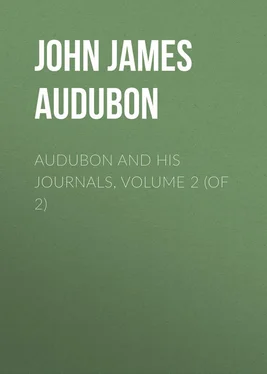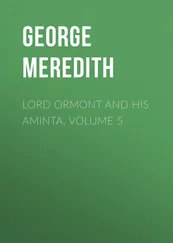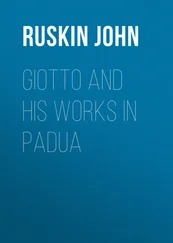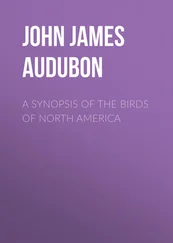John Audubon - Audubon and his Journals, Volume 2 (of 2)
Здесь есть возможность читать онлайн «John Audubon - Audubon and his Journals, Volume 2 (of 2)» — ознакомительный отрывок электронной книги совершенно бесплатно, а после прочтения отрывка купить полную версию. В некоторых случаях можно слушать аудио, скачать через торрент в формате fb2 и присутствует краткое содержание. Жанр: foreign_antique, foreign_prose, на английском языке. Описание произведения, (предисловие) а так же отзывы посетителей доступны на портале библиотеки ЛибКат.
- Название:Audubon and his Journals, Volume 2 (of 2)
- Автор:
- Жанр:
- Год:неизвестен
- ISBN:нет данных
- Рейтинг книги:5 / 5. Голосов: 1
-
Избранное:Добавить в избранное
- Отзывы:
-
Ваша оценка:
- 100
- 1
- 2
- 3
- 4
- 5
Audubon and his Journals, Volume 2 (of 2): краткое содержание, описание и аннотация
Предлагаем к чтению аннотацию, описание, краткое содержание или предисловие (зависит от того, что написал сам автор книги «Audubon and his Journals, Volume 2 (of 2)»). Если вы не нашли необходимую информацию о книге — напишите в комментариях, мы постараемся отыскать её.
Audubon and his Journals, Volume 2 (of 2) — читать онлайн ознакомительный отрывок
Ниже представлен текст книги, разбитый по страницам. Система сохранения места последней прочитанной страницы, позволяет с удобством читать онлайн бесплатно книгу «Audubon and his Journals, Volume 2 (of 2)», без необходимости каждый раз заново искать на чём Вы остановились. Поставьте закладку, и сможете в любой момент перейти на страницу, на которой закончили чтение.
Интервал:
Закладка:
July 25, Tuesday. We were all rather lazy this morning, but about dinner-time Owen and his man arrived, and told us they had reached Mr. Kipp and his boat at the crossings within about half a mile of Fort Alexander; that his men were all broken down with drawing the cordelle through mud and water, and that they had lost a white horse, which, however, Owen saw on his way, and on the morning of his start from this fort. About the same time he shot a large Porcupine, and killed four bulls and one cow to feed upon, as well as three rattlesnakes. They saw a large number of Buffalo cows, and we are going after them to-morrow morning bright and early. About two hours later Provost and La Fleur, about whom I had felt some uneasiness, came to the landing, and brought the heads and skins attached to two female Antelopes. Both had been killed by one shot from La Fleur, and his ball broke the leg of a third. Provost was made quite sick by the salt water he had drunk; he killed one doe, on which they fed as well as on the flesh of the "Cabris." Whilst following the Mauvaises Terres (broken lands), they saw about twenty Bighorns, and had not the horse on which Provost rode been frightened at the sight of a monstrous buck of these animals, he would have shot it down within twenty yards. They saw from fifteen to twenty Buffalo cows, and we hope some of the hunters will come up with them to-morrow. I have been drawing the head of one of these beautiful female Antelopes; but their horns puzzle me, and all of us; they seem to me as if they were new horns, soft and short; time, however, will prove whether they shed them or not. Our preparations are already made for preserving the skins of the Antelopes, and Sprague is making an outline which I hope will be finished before the muscles of the head begin to soften. Not a word from the six hunters who promised to go after Bighorns on the Yellowstone.
July 26, Wednesday. We were all on foot before daybreak and had our breakfast by an early hour, and left on our trip for Buffalo cows. The wagon was sent across by hauling it through the east channel, which is now quite low, and across the sand-bars, which now reach seven-eighths of the distance across the river. We crossed in the skiff, and walked to the ferry-boat – I barefooted, as well as Mr. Culbertson; others wore boots or moccasins, but my feet have been tender of late, and this is the best cure. Whilst looking about for sticks to support our mosquito bars, I saw a Rabbit standing before me, within a few steps, but I was loaded with balls, and should have torn the poor thing so badly that it would have been useless as a specimen, so let it live. We left the ferry before six, and went on as usual. We saw two Antelopes on entering the bottom prairie, but they had the wind of us, and scampered off to the hills. We saw two Grouse, one of which Bell killed, and we found it very good this evening for our supper. Twelve bulls were seen, but we paid no attention to them. We saw a fine large Hawk, apparently the size of a Red-tailed Hawk, but with the whole head white. It had alighted on a clay hill or bank, but, on being approached, flew off to another, was pursued and again flew away, so that we could not procure it, but I have no doubt that it is a species not yet described. We now crossed Blackfoot River, and saw great numbers of Antelopes. Their play and tricks are curious; I watched many of the groups a long time, and will not soon forget them. At last, seeing we should have no meat for supper, and being a party of nine, it was determined that the first animal seen should be run down and killed. We soon saw a bull, and all agreed to give every chance possible to Squires. Mr. C., Owen, and Squires started, and Harris followed without a gun, to see the chase. The bull was wounded twice by Squires, but no blood came from the mouth, and now all three shot at it, but the bull was not apparently hurt seriously; he became more and more furious, and began charging upon them. Unfortunately, Squires ran between the bull and a ravine quite close to the animal, and it suddenly turned on him; his horse became frightened and jumped into the ravine, the bull followed, and now Squires lost his balance; however, he threw his gun down, and fortunately clung to the mane of his horse and recovered his seat. The horse got away and saved his life, for, from what Mr. C. told me, had he fallen, the bull would have killed him in a few minutes, and no assistance could be afforded him, as Mr. C. and Owen had, at that moment, empty guns. Squires told us all; he had never been so bewildered and terrified before. The bull kept on running, and was shot at perhaps twenty times, for when he fell he had twelve balls in his side, and had been shot twice in the head. Another bull was now seen close by us, and Owen killed it after four shots. Whilst we were cutting up this one, La Fleur and some one else went to the other, which was found to be very poor, and, at this season smelling very rank and disagreeable. A few of the best pieces were cut away, and, as usual, the hunters ate the liver and fat quite raw, like Wolves, and we were now on the move again. Presently we saw seven animals coming towards us, and with the glass discovered there were six bulls and one cow. The hunters mounted in quick time, and away after the cow, which Owen killed very soon. To my surprise the bulls did not leave her, but stood about one hundred yards from the hunters, who were cutting her in pieces; the best parts were taken for dried meat. Had we not been so many, the bulls would, in all probability, have charged upon the butchers, but after a time they went off at a slow canter. At this moment Harris and I were going towards the party thus engaged, when a Swift Fox started from a hole under the feet of Harris' horse. I was loaded with balls, and he also; he gave chase and gained upon the beautiful animal with remarkable quickness. Bell saw this, and joined Harris, whilst I walked towards the butchering party. The Fox was overtaken by Harris, who took aim at it several times, but could not get sight on him, and the little fellow doubled and cut about in such a manner that it escaped into a ravine, and was seen no more. Now who will tell me that no animal can compete with this Fox in speed, when Harris, mounted on an Indian horse, overtook it in a few minutes? We were now in sight of a large band of cows and bulls, but the sun was low, and we left them to make our way to the camping-place, which we reached just before the setting of the sun. We found plenty of water, and a delightful spot, where we were all soon at work unsaddling our horses and mules, bringing wood for fires, and picking service-berries, which we found in great quantities and very good. We were thirty miles from Fort Union, close to the three Mamelles, but must have travelled near fifty, searching for and running down the game. All slept well, some outside and others inside the tent, after our good supper. We had a clear, bright day, with the wind from the westward.
July 27, Thursday. This morning was beautiful, the birds singing all around us, and after our early breakfast, Harris, with La Fleur and Mr. Culbertson, walked to the top of the highest of the three Mamelles; Bell went to skinning the birds shot yesterday, 34among which was a large Titmouse of the Eastern States, while I walked off a short distance, and made a sketch of the camp and the three Mamelles. I hope to see a fair picture from this, painted by Victor, this next winter, God willing. During the night the bulls were heard bellowing, and the Wolves howling, all around us. Bell had seen evidences of Grizzly Bears close by, but we saw none of the animals. An Antelope was heard snorting early this morning, and seen for a while, but La Fleur could not get it. The snorting of the Antelope is more like a whistling, sneezing sound, than like the long, clear snorting of our common Deer, and it is also very frequently repeated, say every few minutes, when in sight of an object of which the animal does not yet know the nature; for the moment it is assured of danger, it bounds three or four times like a sheep, and then either trots off or gallops like a horse. On the return of the gentlemen from the eminence, from which they had seen nothing but a Hawk, and heard the notes of the Rock Wren, the horses were gathered, and preparations made to go in search of cows. I took my gun and walked off ahead, and on ascending the first hill saw an Antelope, which, at first sight, I thought was an Indian. It stood still, gazing at me about five hundred yards off; I never stirred, and presently it walked towards me; I lay down and lowered my rifle; the animal could not now see my body; I showed it my feet a few times, at intervals. Presently I saw it coming full trot towards me; I cocked my gun, loaded with buck-shot in one barrel and ball in the other. He came within thirty yards of me and stopped suddenly, then turned broadside towards me. I could see his very eyes, his beautiful form, and his fine horns, for it was a buck. I pulled one trigger – it snapped, the animal moved not; I pulled the other, snapped again, and away the Antelope bounded, and ran swiftly from me. I put on fresh caps, and saw it stop after going a few hundred yards, and presently it came towards me again, but not within one hundred and fifty yards, when seeing that it would not come nearer I pulled the trigger with the ball; off it went, and so did the Antelope, which this time went quite out of my sight. I returned to camp and found all ready for a move. Owen went up a hill to reconnoitre for Antelopes and cows; seeing one of the former he crept after it. Bell followed, and at this moment a Hare leaped from the path before us, and stopped within twenty paces. Harris was not loaded with shot, and I only with buck-shot; however, I fired and killed it; it proved to be a large female, and after measuring, we skinned it, and I put on a label "Townsend's Hare, killed a few miles from the three Mamelles, July 27, 1843." After travelling for a good while, Owen, who kept ahead of us, made signs from the top of a high hill that Buffaloes were in sight. This signal is made by walking the rider's horse backwards and forwards several times. We hurried on towards him, and when we reached the place, he pointed to the spot where he had seen them, and said they were travelling fast, being a band of both cows and bulls. The hunters were mounted at once, and on account of Squires' soreness I begged him not to run; so he drove me in the wagon as fast as possible over hills, through plains and ravines of all descriptions, at a pace beyond belief. From time to time we saw the hunters, and once or twice the Buffaloes, which were going towards the fort. At last we reached an eminence from which we saw both the game and the hunters approaching the cattle, preparatory to beginning the chase. It seems there is no etiquette among Buffalo hunters, and this proved a great disappointment to friend Harris, who was as anxious to kill a cow, as he had been to kill a bull. Off went the whole group, but the country was not as advantageous to the pursuers, as to the pursued. The cows separated from the bulls, the latter making their way towards us, and six of them passed within one hundred yards of where I stood; we let them pass, knowing well how savage they are at these times, and turned our eyes again to the hunters. I saw Mr. C. pursuing one cow, Owen another, and Bell a third. Owen shot one and mortally wounded it; it walked up on a hill and stood there for some minutes before falling. Owen killed a second close by the one Mr. C. had now killed, Bell's dropped dead in quite another direction, nearly one mile off. Two bulls we saw coming directly towards us, so La Fleur and I went under cover of the hill to await their approach, and they came within sixty yards of us. I gave La Fleur the choice of shooting first, as he had a rifle; he shot and missed; they turned and ran in an opposite direction, so that I, who had gone some little distance beyond La Fleur, had no chance, and I was sorry enough for my politeness. Owen had shot a third cow, which went part way up a hill, fell, and kicked violently; she, however, rose and again fell, and kept kicking with all her legs in the air. Squires now drove to her, and I walked, followed by Moncrévier, a hunter; seeing Mr. C. and Harris on the bottom below we made signs for them to come up, and they fortunately did, and by galloping to Squires probably saved that young man from more danger; for though I cried to him at the top of my voice, the wind prevented him from hearing me; he now stopped, however, not far from a badly broken piece of ground over which had he driven at his usual speed, which I doubt not he would have attempted, some accident must have befallen him. Harris and Mr. C. rode up to the cow, which expired at that moment. The cow Mr. C. had killed was much the largest, and we left a cart and two men to cut up this, and the first two Owen had killed, and went to the place where the first lay, to have it skinned for me. Bell joined us soon, bringing a tongue with him, and he immediately began operations on the cow, which proved a fine one, and I have the measurements as follows: "Buffalo Cow, killed by Mr. Alexander Culbertson, July 27, 1843. Nose to root of tail, 96 inches. Height at shoulder, 60; at rump, 551⁄2. Length of tail vertebræ, 13; to end of hair, 25; from brisket to bottom of feet, 211⁄2; nose to anterior canthus, 101⁄2; between horns at root, 113⁄8; between tops of ditto, 171⁄8; between nostrils, 21⁄4; length of ditto, 21⁄2; height of nose, 31⁄8; nose to opening of ear, 20; ear from opening to tip, 5; longest hair on head, 14 inches; from angle of mouth to end of under lip, 31⁄2." Whilst we were at this, Owen and Pike were hacking at their cow. After awhile all was ready for departure, and we made for the "coupe" at two o'clock, and expected to have found water to enable us to water our horses, for we had yet some gallons of the Missouri water for our own use. We found the road to the "coupe," which was seen for many, many miles. The same general appearance of country shows throughout the whole of these dreary prairies; up one hill and down on the other side, then across a plain with ravines of more or less depth. About two miles west of the "coupe," Owen and others went in search of water, but in vain; and we have had to cross the "coupe" and travel fully two miles east of it, when we came to a mere puddle, sufficient however, for the night, and we stopped. The carts with the meat, and our effects, arrived after a while; the meat was spread on the grass, the horses and mules hoppled and let go, to drink and feed. All hands collected Buffalo dung for fuel, for not a bush was in sight, and we soon had a large fire. In the winter season this prairie fuel is too wet to burn, and oftentimes the hunters have to eat their meat raw, or go without their supper. Ours was cooked however; I made mine chiefly from the liver, as did Harris; others ate boiled or roasted meat as they preferred. The tent was pitched, and I made a bed for Mr. C. and myself, and guns, etc., were all under cover; the evening was cool, the wind fresh, and no mosquitoes. We had seen plenty of Antelopes; I shot at one twenty yards from the wagon with small shot. Harris killed a Wolf, but we have seen very few, and now I will wish you all good-night; God bless you!
Читать дальшеИнтервал:
Закладка:
Похожие книги на «Audubon and his Journals, Volume 2 (of 2)»
Представляем Вашему вниманию похожие книги на «Audubon and his Journals, Volume 2 (of 2)» списком для выбора. Мы отобрали схожую по названию и смыслу литературу в надежде предоставить читателям больше вариантов отыскать новые, интересные, ещё непрочитанные произведения.
Обсуждение, отзывы о книге «Audubon and his Journals, Volume 2 (of 2)» и просто собственные мнения читателей. Оставьте ваши комментарии, напишите, что Вы думаете о произведении, его смысле или главных героях. Укажите что конкретно понравилось, а что нет, и почему Вы так считаете.












